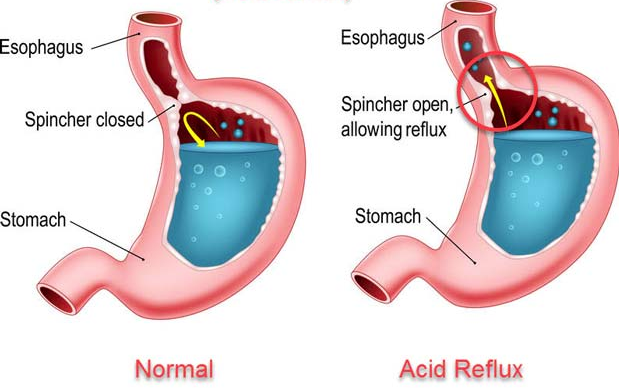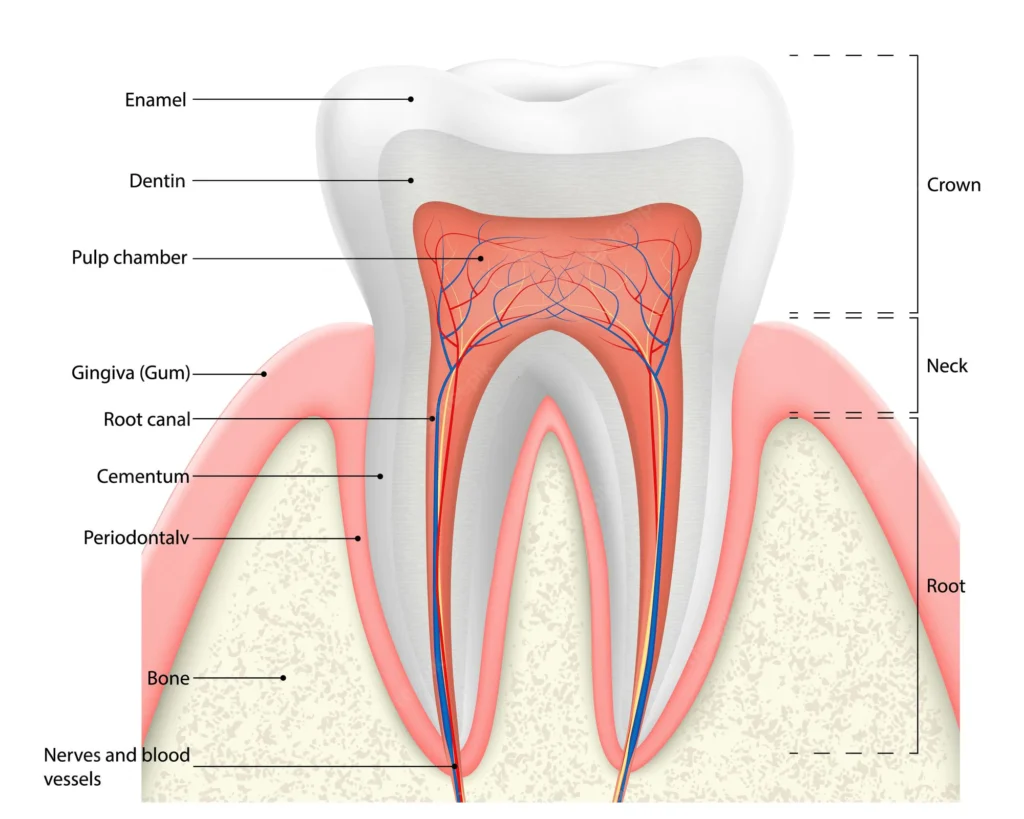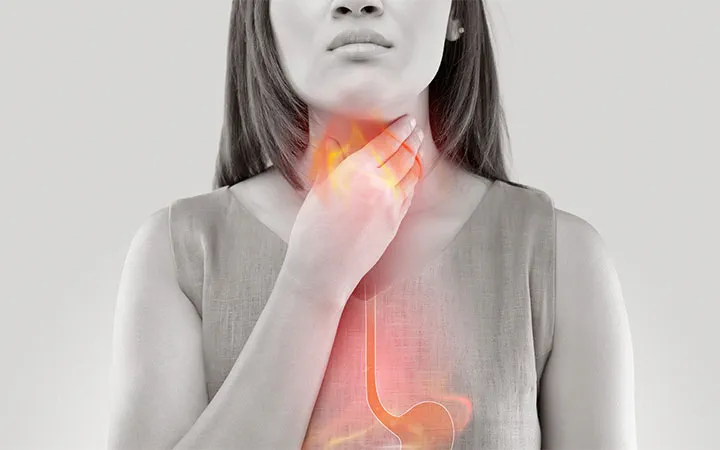Acid reflux is a common problem that affects millions of people around the world. According to National Institute of Health, about 20 percent of Americans suffer from gastroesophageal reflux disease, or GERD. It is usually caused by improper eating and drinking habits as well as other factors like obesity or pregnancy.
While most discussion around acid reflux revolves around the discomfort you feel in your abdomen and throat, the implications or your oral health often go unnoticed—until it’s too late.
In this article, we will explain more the corrosive impact of acid reflux on your pearly whites and the 10 effective ways you can protect your teeth from the nasty acid.
The Science Behind Acid Reflux
Acid reflux is a situation when stomach acid flows back through the oesophagus to the mouth. This occurs when a ring of muscle called the esophageal sphincter (LES) doesn’t close fully or opens too frequently, giving the gastric juices the opportunity to flow up into the oesophagus and in to the mouth.
The stomach acid, which is made up of hydrochloric acid (HCl), pepsin, and other digestive enzymes, has a pH of between 1 and 2. It is designed to breakdown food and kill bacteria. However, in the event of an acid reflux, the stomach acid. When this happens, the stomach acid, which has a pH of 1.5 to 3.5, irritates the inner linings of the oesophagus and erode the gums and teeth in the mouth.

Some of the common factors that can increase the risk of acid reflux include:
- Hiatal hernia, a condition where the upper part of the stomach bulges above the diaphragm and into the chest area.
- Consumption of large amount of certain food such as citrus fruits, spicy food, and fried food
- Poor eating habits such as frequent suppers and eating of unhealthy food
- Specific medication such as ibuprofen, blood pressure medication, and muscle relaxers.
- Overweight
- Pregnancy
- Smoking
- Genetic factors
Nearly everyone would experience acid reflux at one point in their life. Some of the common symptoms include heartburn (a burning sensation in the chest or throat), chests pain, nausea, regurgitation of food or liquid, sore throat, and a bloat tummy.
For most people, acid reflux is a mild condition that does not disrupt life. Yet, for some who suffer from chronic acid reflux, they experience debilitating health problems including a persistent cough, wheezing, gingivitis and dentin hypersensitivity, a condition where one experiences a sharp pain or discomfort when the teeth is exposed to a thermal or chemical stimuli.
You may be interested in: Can You Drink Water Immediately After Using Mouthwash?
In some serious cases, it can lead to severe conditions such as esophagitis, Barrett’s esophagus, and even esophageal cancer if left untreated.
Individuals who suspect that they suffer from acid reflux or GERD should consult their local doctor for an immediate physical examination before the condition worsens.
How Acid Reflux Destroys the Teeth
While a low pH is good when it comes to the breaking down of food, it is a huge problem when it make its way into one’s mouth.
The tooth enamel is a hard protective outer layer of your teeth. In fact, the teeth is stronger than a bone. Even so, the enamel is no match for the highly acid stomach acid.

When acid reflux happens, stomach acid flows back up to the mouth, causing it to swirl around the teeth and erode the tooth enamel. This results in the wearing away of the enamel, as the acid interacts with hydroxyapatite, the mineral responsible for the hardness of tooth enamel, thereby causing it to erode.
Over the course of several acid reflux episodes, the enamel becomes thinner and weaker, making the dentin and dental pulp more suspectible to bacterial attacks and infections. The tooth also becomes sharper, and more yellowish due to the constant erosion.
Protecting the Teeth From Acid Reflux
Individuals who suffer from acid reflux and enamel erosion should consult their dentist immediately and take the appropriate treatment plans as directed. In the mean time, there are several strategies that one can take on to protect your teeth, and manage acid reflux.
- Rinse with Water After Reflux: If you have just been through an episode of acid reflux, rinse your mouth immediately with water to neutralize the acid and minimize its erosive impact on the enamel.
- Avoid Brushing After Reflux: This may sound counterintuitive, bu you should avoid brushing your teeth immediately after a reflux episode. Doing so can spread the stomach acid around your mouth, exacerbating enamel erosion. Wait at least 30 minutes before brushing. As a rule of thumb, wait at least 30 minutes before brushing.
- Chew Sugar- Free Gum: Chewing sugar-free gum stimulates saliva production, which can help neutralize stomach acid and aid in the remineralization of the enamel.
- Use Medications: Over-the-counter antacids can neutralize stomach acid and minimize the impact of acid reflux. Before starting on the medication, mke sure to consult with your healthcare provider and dentist first.
- Use Fluoridated Toothpaste: Fluoridated toothpaste can help to remineralize and strengthen the enamel, making it more resistant to acid erosion.
- Limit Intake of Acidic Foods: Cut back on the consumption of acidic foods like citrus fruits, sodas, and vinegary snacks can help reduce the acidity in your mouth.
- Use a Straw: If you’re drinking acidic beverages like soda or citrus juices, using a straw can help minimize contact with your teeth.
- Minimize or Quit Smoking: Smoking or the use tobacco products can exacerbate acid reflux and weaken your oral health. Quitting these habits can improve both your digestive and dental health.
- Consult Your Dentist Regularly: Regular dental visits will help monitor the condition of your teeth and catch any early signs of enamel erosion. if you are unable to control your episodes of acid reflux, you may need to consult a gastroenterologist also to tackle the problem from both ends.
- Maintain Good Oral Hygiene: This cannot be emphasized anymore times. Regular brushing with a soft-bristled toothbrush, flossing, and using an antiseptic mouthwash can help maintain a healthy oral environment, reducing the impact of acid erosion.
Takeaway
Dealing with acid reflux is more than just a digestive issue; it’s a dental concern that requires your attention as well.
The constant backflow of stomach acid into the mouth can lead to an array of dental problems, from enamel erosion to tooth sensitivity and even cavities. Thankfully, there are several steps you can take to prevent or minimize the impact of acid erosions. This can range from simple measures like rinsing your mouth with water to the use of fluoridated toothpaste and limited consumption of acidic food.
If you’re experiencing persistent symptoms of acid reflux, don’t ignore them as it may lead to irreversible damage. Early diagnosis and intervention are key to preventing long-term damage to your tooth. So, take charge today, because every smile is worth protecting!







